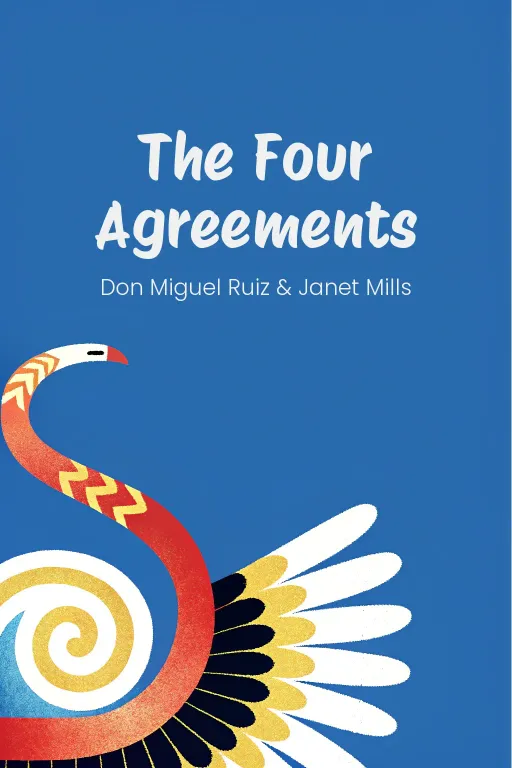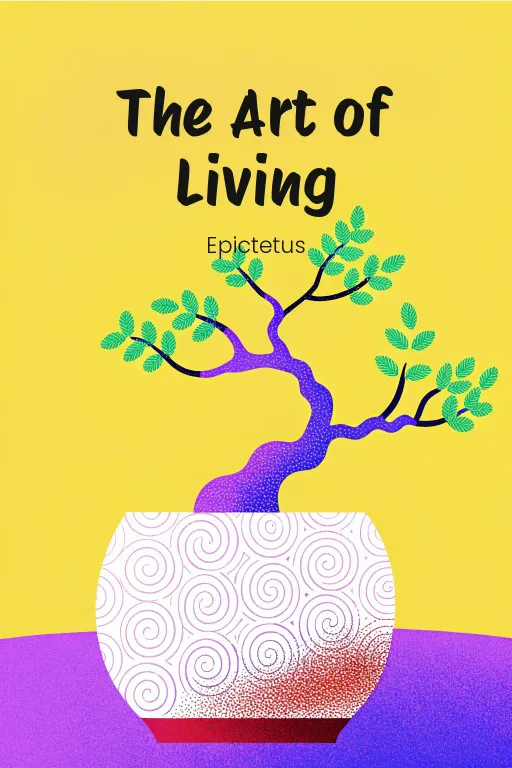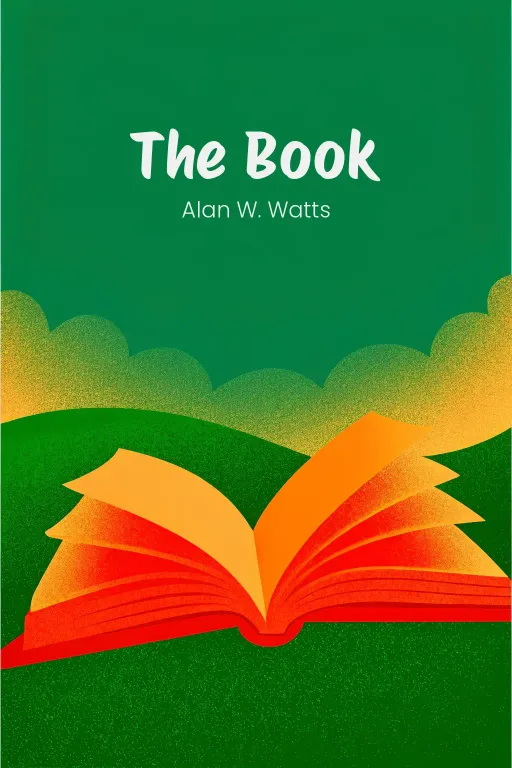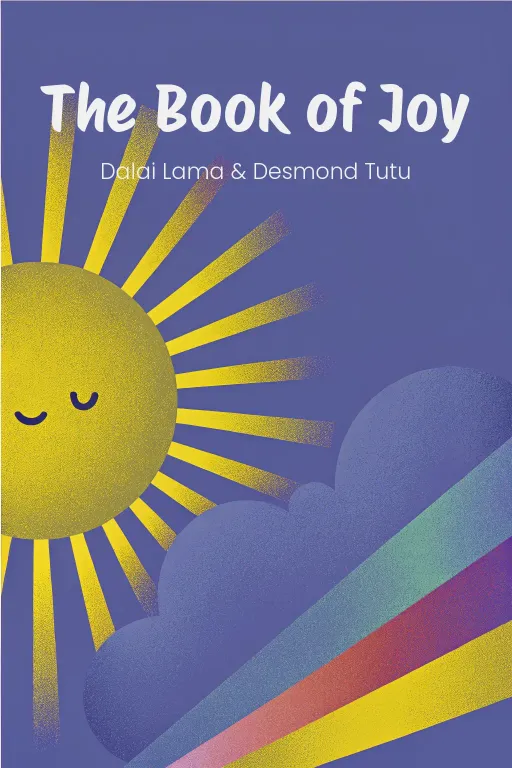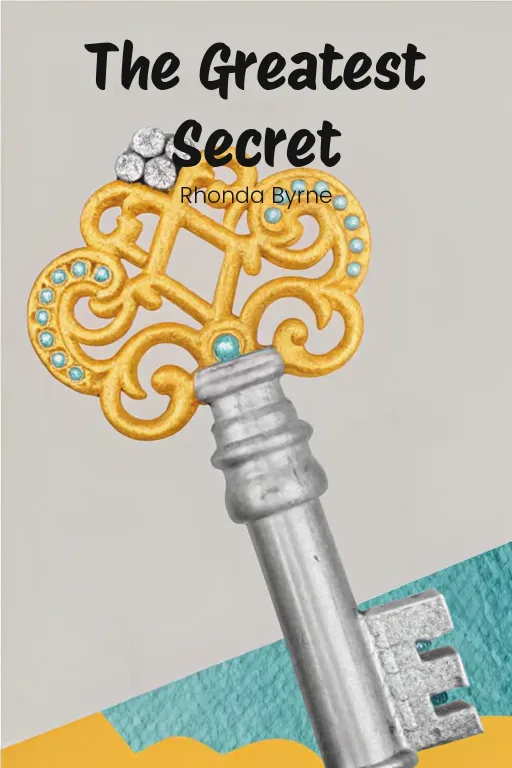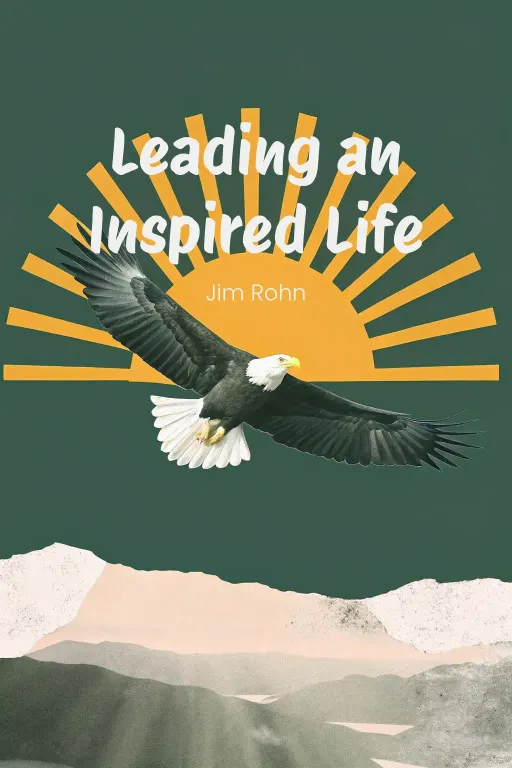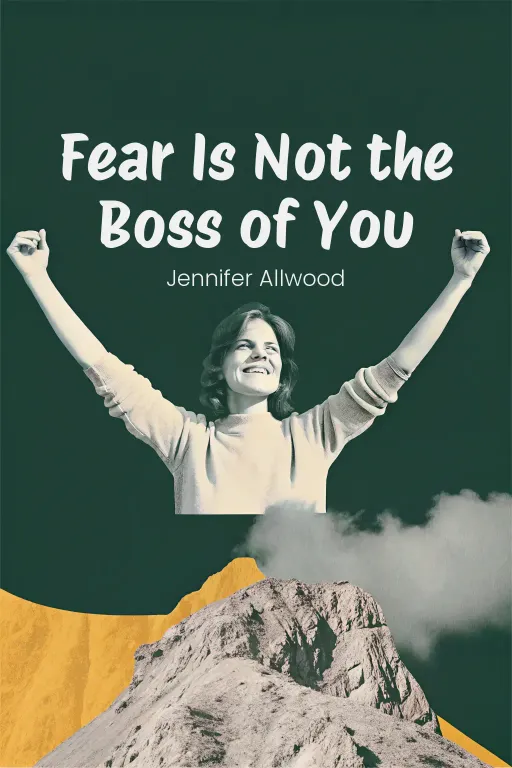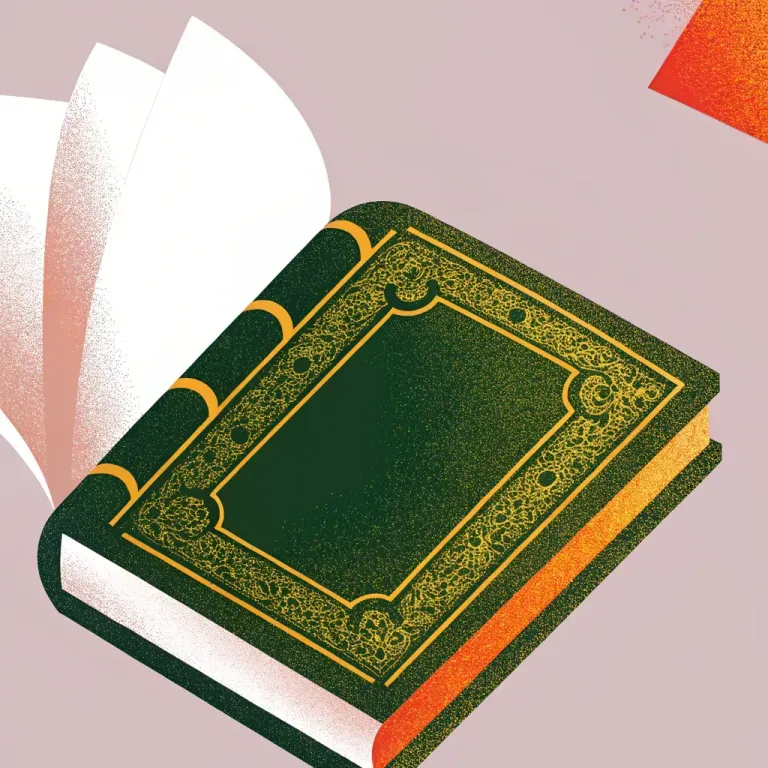
Cosmic Dance: Ditch Your Ego!
Podcast by Beta You with Alex and Michelle
On the Taboo Against Knowing Who You Are
Introduction
Part 1
Alex: Hey everyone, welcome back! Ever get that feeling… you know, like you're just floating out there, a tiny speck in this crazy, huge universe? What if I told you that feeling of being totally separate… it might not even be real? Michelle: An illusion, you say? So, all this… gestures vaguely at himself… this carefully constructed “Michelle-ness,” is just a figment of my overactive imagination? Alex: That's what Alan Watts digs into in his book, The Book: On the Taboo Against Knowing Who You Are. He explores the idea that the ‘self’ we think we are—that isolated ego—isn't the whole story. Watts argues we're all deeply connected to the universe, but society kind of drills that truth right out of us. Michelle: Yeah, because growing up, nobody tells you, "Hey, you're basically the universe pretending to be human.” It's more like, "Stay inside the lines, get good grades." Alex: Exactly! Watts pulls from Eastern philosophies like Zen and Vedanta, even modern science, to show how this illusion of separateness has kind of taken over. He wants us to wake up to the idea that we're not just watching life, we are life. It's a pretty big shift in perspective, right? Michelle: Okay, so if I'm not just me, but also the stars and… I don’t know… maybe the dust bunnies under the couch… what do I do with that information? Does that mean I have to start paying dust bunny taxes now? Alex: <Laughs> Great question, Michelle. That's what we're diving into today. We're going to explore three main themes from the book. First, how society kind of trains us to feel separate, like we're stuck in these individual bubbles. Michelle: Like the world's loneliest social media platform… stuck with just yourself. Alex: Exactly! And second, we'll talk about how that sense of division is actually false, and that the reality is this beautiful, interconnected dance – what Watts calls the "Game of Black-and-White." Michelle: Okay, a dance sounds promising. Let's just hope the music's better than that elevator muzak I was stuck with last week. Alex: And finally, we’re going to explore how to actually use Watts’ ideas in our daily lives. How to approach life with mindfulness, maybe even a little playfulness. Think of it as like… tuning into the symphony of life, you know? Michelle: So, less agonizing over every little thing, and more… cosmic boogie? Alex: You got it! So, let’s dive into Alan Watts' universe and see what wisdom—and maybe a few laughs—we can find along the way. Excited? Michelle: Absolutely. Let's get philosophical, Alex!
The Illusion of Separateness
Part 2
Alex: Okay, let's dive in. The core idea here is that the illusion of separateness isn't, like, some inherent truth, right? It's something we're “taught”. From the time we're little, we're conditioned to believe we're these isolated individuals. Watts argues that society actively shapes this mindset through our culture and even our language. Michelle: Yeah, makes sense. Like, kids are constantly told to "stand on their own two feet" or praised for being "independent." On the surface, it “sounds” good, but really, we're teaching them, "Hey, you're on your own out there!" Alex: Exactly! And language is key. Western languages are so noun-focused. We're always labeling things: "This is a tree, that's a person, this is Michelle." It's all about drawing these boundaries. Watts says this creates a fragmented mental picture of reality, where everything's separate. Michelle: Wait, so you're saying every time I'm like, "That's my coffee mug," instead of just saying, "coffee-mugging," I'm reinforcing this illusion? Alex: Precisely! If you frame life as static things instead of dynamic processes, you miss the interconnected flow. He gives the example of a tree. As a noun, it feels isolated. But when you think of it as "tree-ing," it's constantly interacting—roots in the soil, leaves photosynthesizing, sheltering birds. It's not separate; it's part of the ecosystem. Michelle: Alright, I see the point. But Alex, let's be real, calling something a "tree"—or a "Michelle," for that matter—makes life simpler. I mean, if I embrace this interconnectedness, aren't I just signing up for cognitive overload? Alex: Not at all! Watts isn't saying we have to ditch words, but rather understand their limitations. They're tools, not absolute truths. When we buy into labels too deeply, we lose sight of life's unity. And “that's” when the illusion of separateness gets dangerous, because it isolates us emotionally, psychologically, and even environmentally. Michelle: Okay, now we're getting somewhere. But this feeling of separateness isn't just about grammar, right? It's baked into society. Like, Watts talks about how we're conditioned to value individuality above everything else. Alex: Absolutely. Western culture thrives on this hyper-focus on the self. Our identities get tied to achievements, possessions, appearances. And from day one, we're taught to compete—be the smartest, the fastest, the best. It creates an internal divide. We see ourselves separate from others, and life as a zero-sum game, where my win means your loss. Michelle: Competitive individualism at its finest. And modern life just cranks that pressure up to eleven. Social media, for example. It's this bizarre double-bind, right? We're told, "Be unique! Be authentic!"—but only in ways that get likes. Doesn't that scream, "Play by the rules while pretending you're breaking them?" Alex: Exactly! It's this psychological trap Watts describes—the double-bind—where we're told to be ourselves but not stray too far from what's acceptable. No wonder we're dealing with so much anxiety and alienation. We're chasing validation from a society that, frankly, profits from our insecurities. Michelle: Exactly. And here's the kicker: the more disconnected I feel, the more I start behaving like this ego-driven island. This separation isn't just psychological—it spills into how we treat the planet, doesn't it? Alex: Without a doubt. When we see ourselves as separate from nature, it becomes easy to exploit it. Watts points to things like deforestation and pollution as clear manifestations of this mindset. I mean, if humans saw themselves as part of the ecosystem, would we clear-cut forests for profit or pump toxins into the land? It'd be like cutting off your own hand. Michelle: I mean, seriously, when was the last time we thanked a forest for making oxygen or acknowledged the microbes in the soil keeping us alive? Instead, we charge ahead like the Earth's just some giant vending machine. Alex: Exactly. And that's the tragedy of the illusion. By viewing the environment as "other," we erode the very systems that support us. Watts insists that recognizing our interconnected role isn't just better for nature—it's better for us. Michelle: Alright, so we've covered how separation messes with society, psychology, and the environment. But, Alex, isn't the big problem that this illusion is so ingrained? I mean, even if want to see this bigger connection, how do I actually feel it? Alex: That's where Watts emphasizes mindfulness and, you know, meditation. Those kinds of practices can help us peel back all those layers of ego-driven thinking and open up our awareness to life's interconnected flow. He suggests visualizing yourself as a wave on the ocean, for example, realizing that while you may feel distinct, you're inseparable from the whole thing. Michelle: So, I'm just wave-ing along, part of this bigger rhythm—no ego, no separation? Sounds idyllic. But let's be real: does that actually help me when I'm stuck in traffic or dealing with a cranky coworker? Alex: It can, if you shift your perspective. Instead of seeing those moments as battles to win or obstacles to overcome, you start to see them as part of the larger dance of existence. Watts' point is that when we let go of ego—that feeling that you are the center—life becomes less stressful, more harmonious. Michelle: Got it. So, instead of obsessing over how annoyed I am, I can think, "Hey, I'm a wave, traffic's a wave, even my grumpy coworker's a wave." Still not ideal, but it does sound, perhaps, less miserable. Alex: Precisely! It's about recognizing that life isn't happening to us—it's happening as us. And once we really realize that, the illusion of separateness starts to dissolve. Everything, even the tough parts, becomes part of a larger, interconnected symphony.
Interconnectedness and Unity
Part 3
Alex: This illusion doesn't just mess with our self-image; it also affects how we interact with everything around us. And that's where Alan Watts really makes a shift. He doesn't just point out the problem; he actually offers a solution. He wants us to genuinely embrace interconnectedness, unity. If we recognize this unity, not as just some philosophical idea, but as something we live and breathe, it changes how we see ourselves, our relationships, nature, and even conflict. Michelle: Okay, so we're talking about "interconnectedness." I get it, but let's be real, it sounds pretty abstract. How does Watts actually show us this? Can you paint me a picture? Where can we see this unity in action? Alex: Well, Watts argues that life itself is the ultimate proof. He uses the metaphor of light and darkness to explain it. Think about it: light can't exist without the dark. They're not just opposites where one wins and one loses. Instead, they actually define each other. Without darkness, we wouldn't even be able to appreciate the light. It's this back-and-forth, this relationship, that makes life so rich. Michelle: Right, so when I'm watching a sunset, all those amazing colors—the oranges, reds, purples—they're only beautiful because of…the shadows? Is that the idea? Alex: Exactly! The beauty of a sunset totally depends on that contrast, the way light plays with the shadows. If you only had bright sunlight with nothing else, it wouldn't be beautiful; it would just blind you. Watts is saying that opposites aren't enemies, they're actually partners that create depth and meaning. A sunset isn't just light, it’s the dance between light and shadow. Michelle: Okay, so if everything's a dance, why do we humans have such a hard time seeing it? We don't exactly walk around appreciating conflict or opposition like it's some grand cosmic performance. Alex: That's because, especially in Western thinking, we're so stuck on dualism, this idea that life is either "good" or "bad," "right" or "wrong." Watts argues that we've been taught to pick sides, to choose a "winner," but that makes us miss the whole point. Life becomes a battle instead of a harmonious interplay. Michelle: And I'm guessing this doesn't just apply to philosophy. Watts applies this to, well, everything? Alex: Absolutely. Take a tree, for example. We usually think of it as this separate thing, but Watts challenges that. A tree isn't isolated; it's part of a bigger process. Its roots connect with the soil, it uses sunlight for energy, it exchanges air with the atmosphere, it shelters animals—all of that is "tree-ing." It’s connected. Michelle: So, instead of thinking "tree," I should think "tree-ing." That's...a bit of a mental shift. But hang on—if everything's connected, does this mean that I’m “Michelle-ing” as I breathe the air and drink coffee right now? Alex: In a way, yes! You’re not separate. Watts would say that seeing the world this way can free us from thinking of everything as separate objects. It helps us realize how connected we are to everything—nature, people, even the universe. Michelle: Okay, I get the idea. But even if I buy into this interconnectedness thing, it doesn't exactly solve real-world problems. If I’m “Michelle-ing” along with the universe, does that help me with global conflict or environmental disasters? Alex: That's a great question. Watts actually suggests that even conflict shows how connected we are, if we're willing to see it differently. Think about martial arts. The opponents aren't enemies; there's respect. They're engaged in something that looks like a fight, but it's built on a shared purpose. They enhance each other's skills. Michelle: That’s a good analogy. So, you're saying conflict doesn't have to be destructive, it can actually lead to understanding, maybe even collaboration. Alex: Exactly! Watts wants us to see tension not as something to be afraid of, but as part of the whole thing. Even global issues can show deeper truths about how we depend on each other. If we step back and ask how we're connected, instead of who's to blame, disagreements can lead to growth and balance. Michelle: I hear you. But conflict is one thing; our attitude toward nature seems even further from this "respectful interplay." Does Watts talk about how our relationship with the environment is out of sync? Alex: He does, and it's one of his most striking points. Humans often treat nature as something separate, something we can control, exploit, or just use up. Watts mentions industrial deforestation. When we cut down forests for profit, we're basically cutting off an arm of the ecosystem. Trees aren't just resources; they're part of the whole system that includes us—oxygen, soil, climate. So, by harming nature, we're harming ourselves. Michelle: It’s like when someone trashes their own house, thinking, "Oh, I'll clean it up later." Except in this case, it’s the planet, and there is no “later.” Alex: Exactly! Watts wants a big shift in how we see things. We need to stop seeing ourselves as separate rulers looking down on nature and start seeing ourselves as part of its processes. When we embrace this, harmony with the environment just becomes natural. Michelle: Alright, Alex, I'm starting to see how this could change how we look at ourselves and the world. But it all sounds kind of...good in theory. What if someone's listening and thinking, "Nice ideas, but life is still hard, and my problems are all about me"? How does Watts think we can actually make this real in our own lives? Alex: That's where mindfulness comes in. He suggests using meditation to get past the illusion of separateness and actually feel that unity. For example, he asks us to imagine ourselves as waves in the ocean. On the surface, the wave looks separate, but it's just the ocean in movement. This helps us feel the connection, not just understand it. Michelle: So, I'm supposed to sit quietly, picture myself as a wave, and suddenly feel one with everything? Sounds peaceful, but also a bit unrealistic when I'm stuck in traffic or stressed about work. Alex: It's not a quick fix for frustration. It's about changing your perspective. Instead of seeing traffic or stress as things attacking you, you start to see them as part of life. Watts' main point is that we're not separate from life; we are life. And when you embrace that, you can deal with challenges with less stress and more acceptance. Michelle: Okay, so the next time someone cuts me off in traffic, I'll just think, "They're part of the cosmic ocean too"—instead of yelling. I see how it could work. Alex: Exactly. It's about dropping the "me versus everything else" attitude. When we realize that life is all connected, we stop fighting it and start flowing with it. And that changes everything, from how we see ourselves to how we treat the world around us.
Practical Liberation through Awareness
Part 4
Alex: You know, recognizing this unity totally transforms how we approach everything, life, relationships, even conflict. Watts isn’t just asking us to “intellectually” understand we’re all interconnected. He wants us to “live” it, you know? That's why he emphasizes practical tools, ways to integrate this awareness into our daily lives. Today, we're diving into what Watts calls “practical liberation”. It’s about moving from this conceptual understanding of oneness to actually embodying it in our actions, making it a reality we experience, not just something we admire from a distance. Michelle: "Practical liberation," huh? Sounds like self-help meets cosmic philosophy. Let me guess – step one involves buying a ridiculously overpriced meditation cushion? Alex: <Laughs> Not exactly, but meditation is central. Watts argues that practices like mindfulness are essential for peeling back the layers of ego. He sees meditation not as a chore or some escape, but as a way to tune into reality without all the static, all the distortions that ego creates. Michelle: Right, because the ego is that non-stop voice in your head constantly going, “This is mine, that's yours, I’m amazing, everyone else is… suspect.” It just doesn’t quit. Alex: Exactly! Watts has this great image, you know? Imagine sitting quietly by the ocean. At first, your mind’s a mess, like, full of worries, plans, memories… but as you focus on your breath and become present, all that mental clutter starts to fade. Soon, you're not just "you" sitting by the water; the sound of the waves, the breeze, everything is part of one continuous experience. Michelle: Okay, so the goal isn't to fight my thoughts, but to let them settle, like, you know, silt in a river. And maybe, in that stillness, I catch a glimpse of this "no separation, ocean of life" thing? Alex: Exactly! It's not about forcing control; it's about letting your awareness naturally expand. And here's the life-changing thing: when you do that, the ego starts to lose its grip. Those fears that feel so personal—fear of failure, even fear of death—they’re all tied to this feeling of separateness. When that illusion dissolves, those anxieties lose their power, too. Michelle: Alright, I’m willing to sit in silence if it means inner peace. But what about, like, situations that don’t exactly feel zen? Say, dealing with conflict? Does Watts offer any tools for those moments when unity feels… well, really hard to find? Alex: That's where his idea of humor comes in, which is so clever. Watts believed humor has the power to liberate us from taking life – and ourselves – too seriously. Think about it: in stressful situations, we're often so caught up in the ego's narrative—"I'm right, they're wrong"—that we can't see the bigger picture. Michelle: Or worse, we turn something trivial into some kind of high-stakes battle royale. Got a real-world example of this? Alex: Totally! Picture two coworkers arguing over something absurd, like whose turn it is to refill the office coffee machine. Tempers are flaring, and it’s escalating—and then one of them cracks a joke: “Honestly, when our egos are this big, I’m surprised there’s even room for the coffee pot in the office.” That one line can shift the entire energy, you know? Suddenly, they're laughing, not yelling, and the argument loses its bite. Michelle: So, humor is like calling out the ego, saying, "Hey, look at you taking up all this space.” And once the ego’s deflated, connection can come back into focus? Alex: Exactly. Humor doesn't negate the conflict; it transforms it. By pointing out the absurdity of taking yourself too seriously, it creates space for understanding and collaboration. Watts sees this as a playful, almost mischievous way to dismantle the ego and realign with interconnectedness. Michelle: I like the idea of disarming conflict with a sense of humor. But what about something even more ingrained, like the ego’s hold on language? I know Watts has some interesting ideas there. Alex: Oh, he definitely does. Watts tackles the way we use language to reinforce the illusion of separateness. Most languages are filled with nouns—things that seem fixed, like objects or labels. We say "I am Michelle," "That is a tree." But Watts suggests shifting to verbs—describing life as a flow of actions and relationships rather than rigid categories. Michelle: Oh, right, the whole "tree-ing" concept you brought up earlier. So instead of thinking of a tree as a distinct thing, we see it as a process – growing, interacting with its environment, participating. And people too, right? Like, I’m not just "Michelle"; I’m "Michelle-ing" – constantly evolving, acting, participating. Alex: Exactly! And that change in perspective can have profound effects. When you stop seeing things—or yourself—as fixed entities, it becomes easier to embrace impermanence and interconnectedness. It's a reminder that life isn't about static roles or possessions; it's about dynamic relationships and experiences. Michelle: So, even in everyday language, we’re trained to draw artificial boundaries – this "self," that "object" – and we forget everything’s part of a larger flow. Seems obvious now, but how do you actually shift your mindset? Language habits are hard to break. Alex: It’s not about perfecting the way you speak but about how you think. Next time you feel stuck, try reframing the situation as a process. If you’re facing a challenge, don’t think, “This is permanent” or “This defines me.” Instead, realize you’re in the middle of something—a moment that’s unfolding, not fixed. You know, that shift can make difficulties feel less overwhelming and more like part of life’s rhythm. Michelle: And once we start thinking this way, I imagine it has a domino effect on how we engage with, like, bigger ethical questions – our role in the world. Alex: Absolutely. Watts emphasizes that recognizing our interconnectedness naturally leads to compassion and responsibility. When you see yourself as part of a larger web, it shifts your focus from individual gain to collective well-being. This extends to relationships, society, even the environment. He gives an example—someone walking away from a materialistic, high-pressure career to dedicate themselves to sustainability or community action. It’s not about sacrifice; it’s about realizing that helping others and nature is a way of helping yourself. Michelle: So someone’s stuck in this corporate grind, focused on personal success, and then starts realizing how empty it feels. They take a step back, shift their priorities, and it's not just a career change, it’s a mindset shift from “me versus them” to “we’re all in this together”? Alex: Exactly. Watts stresses that this isn’t just a personal transformation—it’s a societal necessity. If humanity starts seeing itself as part of an interconnected process, greed and exploitation lose their grip. Imagine the possibilities: industries based on sustainability, communities built on mutual care, policies rooted in global responsibility… Michelle: That's a bold vision, Alex. But Watts also makes it clear that liberation isn’t about perfection—it’s about practice, right? Alex: Absolutely. He says liberation isn’t a destination; it’s an ongoing process. It’s about staying open to life, continuously moving from ego-driven isolation to a sense of unity. Practices like mindfulness, humor, shifting language, and embracing interconnectedness aren’t one-time fixes—they’re lifelong tools for engaging with life more deeply. Michelle: Alright, so the practical path to liberation is a mix of quieting the mind, loosening the ego’s grip, and remembering we’re all part of the same cosmic puzzle. Doesn’t sound easy, but it sure beats the hamster wheel of materialism and self-centered stress. Alex: Exactly. And the beauty of it is that every small step—pausing to breathe, finding humor in conflict, or simply noticing how connected we are—brings us closer to that sense of liberation. The journey isn’t about getting somewhere; it’s about living fully in the here and now.
Conclusion
Part 5
Alex: Okay, so in conclusion, Alan Watts really pushes us to question everything, doesn't he? Like, what we think we know about ourselves and our place in the world. He basically dismantles this idea that we're all just separate little egos floating around, showing us that it's really just a story we've been told by language and culture. Instead, he wants us to see that we're all connected, part of this big, flowing, dynamic universe. Michelle: Right, and it's not just some abstract concept, is it? Seeing that interconnectedness, it “should” change how we live. Watts gives us some real tools—mindfulness, a sense of humor, even just being more conscious of the language we use—to help us break free from thinking that's solely driven by our ego. It becomes less about obsessing over "me, me, me" and more about, well, thriving as part of the whole thing. Alex: Exactly! And his message is that being truly free isn't about avoiding the tough stuff in life. It's about diving in, seeing it all as part of the dance, you know? When we let go of the ego and wake up to the fact that we're all one, we naturally become more compassionate—towards ourselves, towards other people, and, of course, towards the planet. Michelle: So, the big takeaway? I'm not just "Michelle," a static entity; I'm "Michelle-ing," a verb in progress. And maybe, just maybe, we're all figuring out how to flow a little better in this giant cosmic symphony. Or at least, attempting to... Alex: Absolutely! And on that note, we’ll leave you with this: What small thing could you do today to get a clearer sense of how connected you are to everything else? Whether it's taking a mindful moment, looking at a problem in a new way, or just taking a second to appreciate the world around you... remember, you're not separate. You're part of it all. Michelle: Definitely food for thought. Thanks for hanging out with us, everyone. Until next time, keep dancing… awkwardly, perhaps, but keep dancing with the universe.
